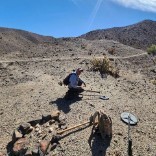GPZ Low-high Signals And High Yield Vs General
-
Similar Content
-
- 23 replies
- 1,384 views
-
- 44 replies
- 4,514 views
-
- 5 replies
- 667 views
-
Avantree Interested In Hearing From You 1 2 3 4 8
By Wiggins,
- minelab gpz 7000
- headphones and audio
- (and 1 more)
- 78 replies
- 10,396 views
-
- 19 replies
- 3,207 views
-
- 24 replies
- 4,508 views
-
-









Recommended Posts
Create an account or sign in to comment
You need to be a member in order to leave a comment
Create an account
Sign up for a new account in our community. It's easy!
Register a new accountSign in
Already have an account? Sign in here.
Sign In Now